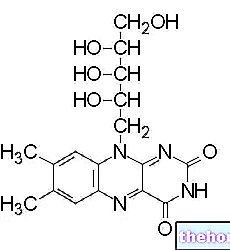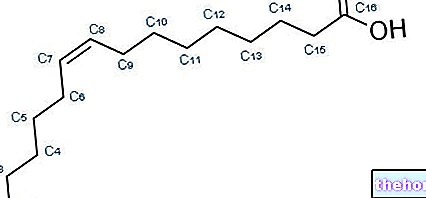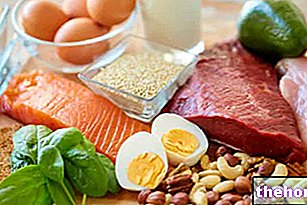Maltose is a disaccharide consisting of two glucose molecules joined together through α (1 → 4) bonds. In nature, maltose is found in fair quantities only in sprouted seeds.

Our organism derives maltose from the digestion of starch, a reserve polysaccharide typical of the vegetable kingdom. Once ingested, the starch is gradually broken down into shorter chains:
starch → dextrins (5-10 glucose units) → maltotriose (3 glucose units) → maltose (2 glucose units) → free glucose
This digestive process already begins in the mouth, thanks to the intervention of salivary amylases (or ptyalin), is blocked in the stomach due to the high acidity and resumes in the duodenum, where the pancreatic amylases are poured out. Thanks to these enzymes, the starch is broken down into dextrins, which will then be reduced to maltotriose and maltose by specific intestinal enzymes, called dextrinases. other enzymes (maltase, isomaltase, sucrase), capable of breaking down these oligosaccharides into the individual glucose units that compose them.
The hydrolysis reaction operated by our organism can also be reproduced in the industrial field. The maltose thus obtained, thanks to its high digestibility, is used in the preparation of beverages and baby food. It also acts as a substrate for yeast fermentation, thanks to the action of an enzyme, called maltase, which hydrolyzes maltose to glucose; the latter will then be fermented by other enzymes present in the yeast, with subsequent production of alcohol (which evaporates during cooking) and carbon dioxide (which acts as a leavening agent).
Maltose is also important in the process of making beer and fruit jellies.
Foods rich in this disaccharide should be consumed in moderation, due to the high glycemic index that characterizes it (GI = 152 compared to white bread).
Other Foods - Sweeteners Acesulfame K Aspartame Sugar beet Sugar cane Sodium cyclamate Dextrose Sweeteners Erythritol Fructose Maltose Mannitol Molasses Saccharin Saccharose Maple syrup Agave syrup Fructose syrup Glucose syrup Sugar sorbitol Articles Stevia Sucralitol sugar SWEETENERS Categories Alcoholic Foods Meat Cereals and derivatives Sweeteners Sweets Offal Fruit Dried fruit Milk and Legumes Oils and Fats Fish and fishery products Salami Spices Vegetables Health recipes Appetizers Bread, Pizza and Brioche First courses Second courses Vegetables and Salads Sweets and Desserts Ice cream and sorbets Syrups, liqueurs and grappas Basic Preparations ---- In the Kitchen with leftovers Carnival recipes Christmas recipes Light diet recipes tici Recipes for the Holidays Recipes for Valentine's Day Vegetarian Recipes Protein Recipes Regional Recipes Vegan Recipes





-ed-essenziali-(age).jpg)






















